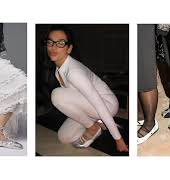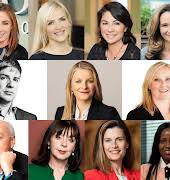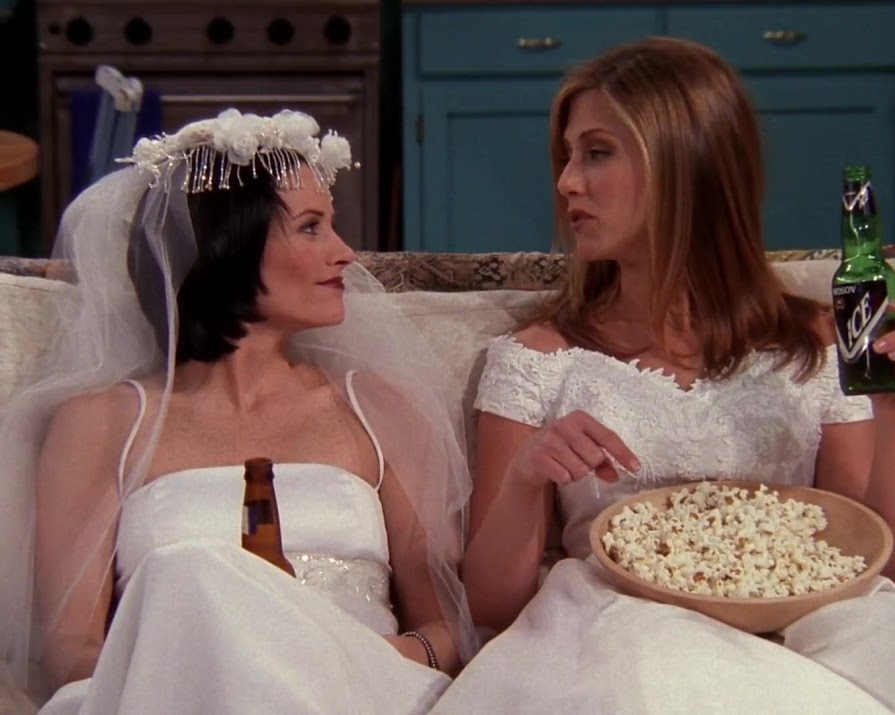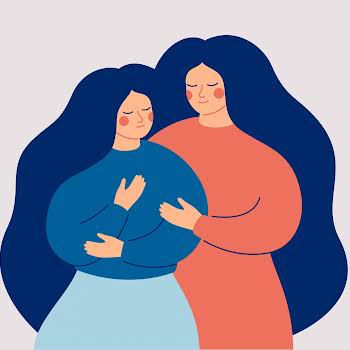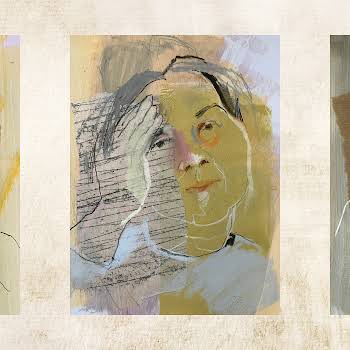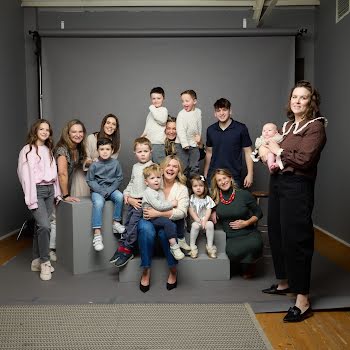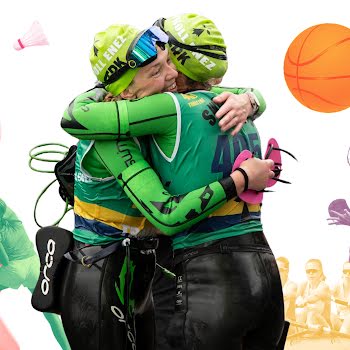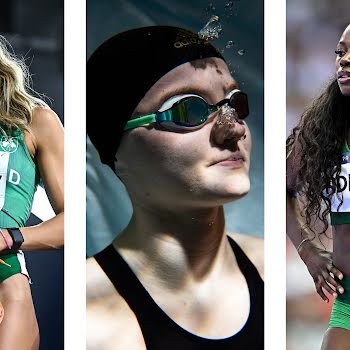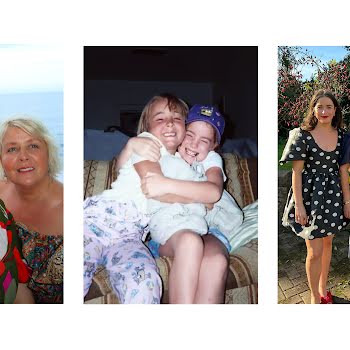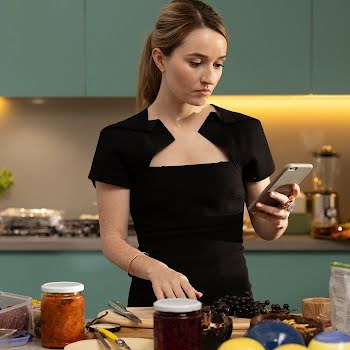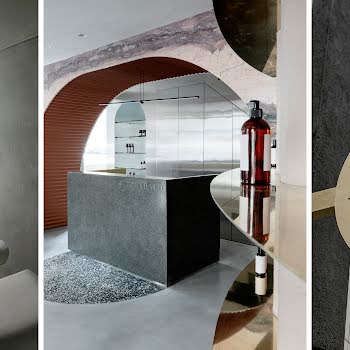‘Are you a Rachel or a Monica?’ Why I think indecision is really my superpower
By Cathy Carey
04th Feb 2024
04th Feb 2024
Taking an online personality quiz, Cathy Carey asks if contorting ourselves to fit into binary boxes is a good idea.
Am I male energy or female energy? An introvert on an extrovert? Thinking or feeling? A leader or a follower? An air or fire sign? Curly or straight hair? Warm or cool skin tone? A Baby or a Sporty Spice? A Carrie or a Samantha?
These are the questions I muse over as I bask in the glow of my devices, sifting through the internet as I sit alone in my room. The more articles I read, the more quizzes I do, the more Instagram filters I use that assign me a font, Disney princess, or Gilmore girl, the more I realise the benefit of being able to fit neatly into a box.
To have the ability to describe ourselves with pin-point accuracy – from eye colour, body type, and skin tone, to management style, moon sign and love language – is powerful, because it paints a detailed self-portrait we can fold up, pocket, and produce for inspection at a moment’s notice.
The online personality quiz
Knowing how to label ourselves is a necessity because it’s an action we are asked to do on a daily basis in our social profiles, our workplaces, and our friend groups. Check the 300 character-max bios on our dating apps and the Myers-Briggs personality test results in our inboxes for evidence. Auto-categorisation is the recipe for success that helps us carve out our niche; it gives us purpose, boundaries, structure, and comfort. It girdles our most digestible selves, our tidiest selves, our most marketable selves. Our “best” selves.
These binaries are a clear point of reference to hold on to, a tool to define our individuality, to draw lines around who we are, and who we are not. I’ll be the first to admit that I am far from immune to the attraction of this kind of personal demarcation and the intoxicating reassurance it offers. In fact, I’ve probably dedicated more time to serious introspection on whether I’m a Rachel or a Monica than most.
How do you define yourself?
When asked to summarise myself, list my biggest interests, or present three funny facts as an ice breaker, I get nervous because I know that my answer will inevitably sound lame, conceited, boring, or all three. I know this because I judge others’ answers just as harshly as I do my own. “Your favourite film is Pitch Perfect and you’re a twin married to a twin? Tell me more!” is not something you’ll be hearing from this mouth any time soon. (Actually on second thought, maybe I do want to hear more about that second one.)
It’s not that I don’t enjoy the reflection, the conversation, and the comparison that these prompts inevitably facilitate, but I’m reluctant to commit to concrete answers. No matter how enthusiastic I may be about categorising myself and my traits, it’s anxiety-inducing to squeeze into a camp that’s in binary opposition to another one.
Fit the brief
My cooperation in the undertaking means mentally reshaping myself – lobbing off inconvenient parts of myself, in order to give an answer that fits the brief, but is revised, adapted, and ultimately untrue. I am patient, and I am impatient. I am nasty, and I am kind-hearted. I am weak, and I am strong. I am masculine, and I am feminine. These adjectives are fluid, and situational, and provide more meaning in comparative scenarios. Place me next to Dwayne ‘The Rock’ Johnson, and I am a picture of femininity. Shuffle me over beside Kim Kardashian, I am subjectively less so.
The quest for identity can have its positive effects, too, because it forces us to face how we see the world and ourselves within it. It explores how we interact with our given environment. The problem arises when we become so overly attached to our adjectives and descriptors that anything that calls them into question threatens our identities, and unravels the attractive tapestry – so carefully composed – of who we are. The need to oversimplify ourselves is reductive in ways that we might struggle psychologically to break down later.
Different and other
An even more worrying (read: dangerous) tendency that persists, especially in the news and on X (formerly Twitter), is not just to define ourselves by who we are, but by who we are not. We are not like them, therefore, they are not like us. They are different. They are other. Statements that communicate this notion of “they” quench empathy, and reduce compassion – a compassion that is in desperately short supply right now.
The question about walls is not a new one: over a century ago, the poet Robert Frost wondered whether good fences make good neighbours. Before we can correctly answer this question, we have to ask: what is a good neighbour? Is it someone who keeps to themselves and their own affairs? Or is it someone who, despite your differences and the occasional neighbourly spat, you can share with, lean on, and forge community alongside? We have been raised as individuals and protagonists, but before we continue to put up fences within and around ourselves we should be asking, what, and whom, we are walling out.
Indecision about who we are and how we identify holds space for us to interact, and think more about others, and what we have in common. Right now, I’m reading Roxane Gay’s memoir, Hunger. Like Gay, I identify as a woman. Like Gay, I grew up comfortable in Western society. Unlike Gay, I am not of Haitian descent, I am not black. I have never had to cope with trauma from rape or struggled with obesity.
I have, however, felt discomfort in my body due to pressure from the media about how I should look. I have felt judged, I have felt gazed upon. I don’t need to have all of the same experiences to feel her pain, to connect our commonalities. On the other hand, thinking about our differences, about things she has experienced that I will probably never truly be able to empathise with, makes me wiser, more understanding, and kinder. At least, that’s what I hope.
I understand that it’s natural to seek to define and identify, to create boundaries for ourselves and others. Designation and classification are important tools in designing systems that serve a function and purpose. I know as well as anyone that online quizzes are fun. When it comes to our personal lives, though, I would advocate erring closer to grey than to black and white, because when we melt ourselves down into bite-sized chunks we can veer dangerously close to boxing ourselves in.
We are not all straight lines, and we should not be separated by them, either. It might be convenient and profitable to summarise yourself for a job interview or a dating website, but don’t get too attached to your adjectives. Indecision is inconvenient at times, yes, but it’s also powerful in its own way. It also opens doors to new conversations that lead us into unchartered territory. It’s enriching and rewarding when leveraged and used well. If there is one thing I’m certain of, it’s that.
Oh yeah, and I’m definitely not a Phoebe.
This article was originally published in May 2022.

